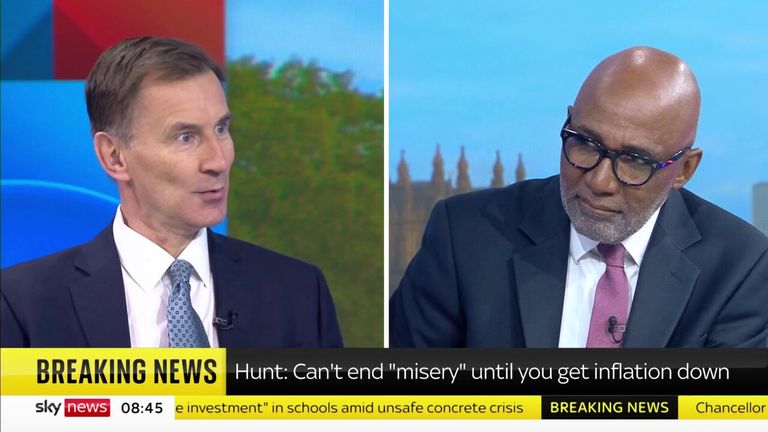Company insolvencies across England and Wales were up 10% in the last quarter compared to the same period last year, according to official figures as a separate report warns of a leap in financial distress.
The Insolvency Service reported 6,208 registered company insolvencies between July and September.
That was 2% down on the previous three months’ 14-year high but still close to levels seen after the 2008 financial crisis.
“The last two quarters saw the highest quarterly insolvency numbers since Q2 2009,” the report said.
The wider figures showed a leap in the number of firms throwing in the towel, as creditor voluntary liquidations hit the highest levels since records began in 1960.
However, much of that has been attributed by experts to clearing court backlogs since the COVID pandemic.
The body said that the number of individual insolvencies over the quarter was 6% down as individuals took advantage of aids to ease immediate pressure on their finances.
There were 23,089 Breathing Space registrations over the period – up 26% – and they included 367 people given additional breathing space because of mental health difficulties.
Charities have warned of a ticking time bomb for personal finances given the continuing squeeze on budgets from the evolving cost of living crisis, with rent, mortgage, energy and food bills remaining punitive.
The impact of rising interest rates, designed to temper the pace of price rises, are being felt by consumers and businesses alike.
The Insolvency Service data was released as the latest Red Flag Alert report by insolvency specialists Begbies Traynor showed “a marked increase” in the number of businesses in ‘critical’ financial distress.
It charted a 25% hike to 37,722 during the third quarter, adding that almost 480,000 businesses across the UK were in ‘significant’ financial distress.
Construction and real estate firms – dented by rate hikes – were among those to see the biggest increases, the report said.
Many companies are looking towards the looming autumn statement for help from the chancellor.
However, Jeremy Hunt has signalled that his focus will be on helping keep a lid on inflation rather than giveaways and handouts.
Read more from Sky News:
14 million UK adults used buy now pay later in six months, the FCA says
Food inflation at ‘8.8%’ in year to October
US carmaker strikes over as GM strikes deal with union
Julie Palmer, partner at Begbies Traynor, said: “Tens of thousands of British companies are now in financial dire straits now that the era of cheap money is firmly behind us.
“Businesses that had loaded up on debt at rock-bottom rates, and were only able to cling on during the pandemic thanks to government support, must now deal with a financial reality check as higher interest rates hit working capital for the foreseeable future.
“Taken together with stubbornly high inflation and weak consumer confidence, many of these businesses will inevitably head towards failure.”

